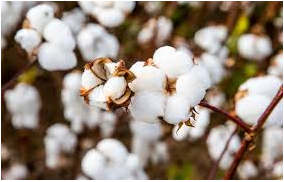i INP-WEALTHPK
Muhammad Luqman
In a landmark development for Pakistan’s agriculture sector, the Centre for Excellence in Molecular Biology (CEMB) at Punjab University, in collaboration with a private agricultural biotechnology research company, has developed a new cotton variety capable of thriving in temperatures as high as 50°C.
“Developed through 25 years of intensive research, the seed variety CEMB-33 has the potential to be a game-changer for the country’s struggling cotton sector and its textile industry,” said Engr. Javaid Saleem Qureshi, Chairman of Four Brothers Agri Research Company.

Talking to WealthPK, he said that CEMB-33 is the first genetically modified cotton variety developed locally, ending years of dependence on smuggled or poorly regulated foreign Bt seeds. “It incorporates advanced Bt gene technology for resistance against bollworms and shows strong tolerance to extreme heat.
It also offers resistance to diseases such as Cotton Leaf Curl Virus (CLCuV),” he explained. According to Qureshi, the new variety has the potential to raise yields from the current average of 15 maunds per acre to 40–45 maunds — even in regions previously considered unsuitable for cotton cultivation. This breakthrough comes at a critical time, as Pakistan’s cotton belt — particularly in Sindh — faces severe impacts of climate change.
Cotton is cultivated in about 15–18 districts of Sindh, including Sanghar, Mirpurkhas, Umerkot, Khairpur, and Shaheed Benazirabad (Nawabshah), where peak-season temperatures now frequently reach 48–50°C between May and July. “Production of conventional varieties has been declining due to early boll drop, flower shedding, and vulnerability to pest attacks — all worsened by unexpected climate fluctuations,” Qureshi added.
Field trials in southern Punjab, including Bahawalpur, Rahim Yar Khan, Multan, and Vehari, have shown promising results. The trials recorded strong boll retention even in 47°C+ conditions, yield increases of 10–15 percent over traditional varieties, improved pest resistance, and better fiber uniformity. Welcoming the achievement, leading biotechnologists stressed the urgent need to improve Pakistan’s regulatory system for genetically modified organisms (GMOs).
“Institutions like NIAB, NIBGE, and CEMB have the capability to develop climate-resilient varieties of cotton, wheat, and other crops. But a weak regulatory framework is obstructing progress,” said Dr. Kausar Abdullah Malik, former caretaker federal minister for national food security, while talking to WealthPK. Dr. Malik, the founding director of NIBGE Faisalabad, noted that climate change had raised Pakistan’s average temperature by 1.5°C, making it imperative to develop crop varieties with high tolerance to heat and drought.
“Wheat and cotton have been the major victims of climate change in Pakistan,” he observed. Cotton production has already suffered significant setbacks. According to the Pakistan Cotton Ginners Association, national output declined from 8.4 million bales in 2023–24 to 5.5 million bales in 2024–25. Punjab’s production was hit the hardest, plummeting by 48.16 percent — from 4.778 million bales to 2.477 million bales.
Dr. Malik, who also heads the federal government’s consultative group on biotechnology, said the group was working to revise national biosafety guidelines to encourage the development of GM varieties capable of withstanding climatic stresses. “We want to amend the guidelines to facilitate the early release of varieties developed through biotechnology and genetic engineering,” he explained, regretting that the existing regulatory system remains the biggest hurdle in advancing climate-resilient crops.
Credit: INP-WealthPk


